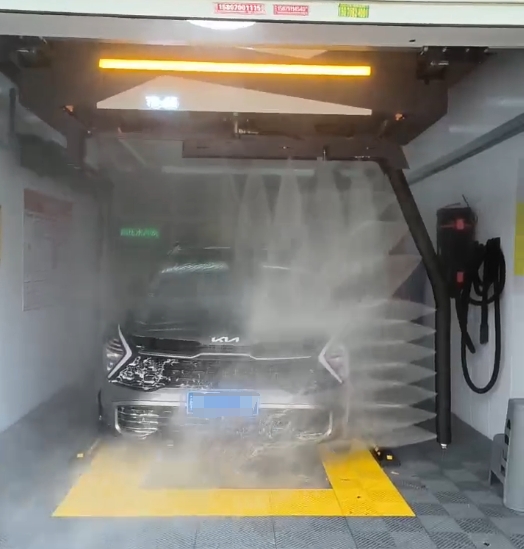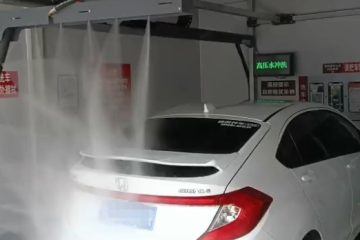The Philippines, with its tropical climate and burgeoning middle class, presents a ripe opportunity for the self-service car wash business. While traditional car washes remain popular, the self-service model is gaining traction, offering both convenience and cost-effectiveness for car owners. This article explores the landscape of this growing industry in the Philippines.

Why Self-Service Car Washes are Taking Off:
Several factors contribute to the increasing popularity of self-service car washes in the Philippines:
Affordability: Self-service washes generally cost less than traditional full-service options, appealing to budget-conscious consumers. This is particularly relevant in a country where a significant portion of the population is price-sensitive.
Convenience: The 24/7 availability of many self-service locations caters to busy schedules. Customers can wash their cars at their convenience, avoiding waiting times often associated with traditional car washes.
Control and Customization: Customers have complete control over the washing process, choosing the type of wash, detergents, and the amount of time spent on each area of the vehicle. This allows for personalized cleaning tailored to individual needs.
Growing Car Ownership: The Philippines is experiencing a steady rise in car ownership, creating a larger pool of potential customers for self-service car washes.
Challenges and Opportunities:
Despite the promising outlook, the self-service car wash business in the Philippines faces some challenges:
Water Scarcity: The Philippines experiences periods of water scarcity, particularly in certain regions. Efficient water management systems are crucial for self-service car wash businesses to operate sustainably. Implementing water recycling systems can mitigate this challenge and attract environmentally conscious consumers.
Competition: The market is becoming increasingly competitive, with both established players and new entrants vying for market share. Differentiation through superior equipment, convenient locations, and excellent customer service is vital for success.
Infrastructure: Reliable power supply and access to appropriate infrastructure are essential for smooth operations. Locations need to be carefully chosen to minimize potential disruptions.
Marketing and Awareness: Many Filipinos may still be unfamiliar with the concept of self-service car washes. Effective marketing strategies are crucial to build brand awareness and attract customers.
Future Trends:
The future of self-service car washes in the Philippines looks bright. We can expect to see:
Technological advancements: Integration of automated payment systems, advanced water recycling technologies, and even touchless washing options will enhance efficiency and appeal.
Emphasis on sustainability: Eco-friendly detergents and water conservation techniques will become increasingly important to attract environmentally conscious consumers.
Strategic location selection: Businesses will focus on high-traffic areas and convenient locations to maximize customer accessibility.
Enhanced customer experience: Offering added services like vacuum cleaners, air blowers, and detailing supplies will improve the overall customer experience.
In conclusion, the self-service car wash industry in the Philippines presents a lucrative business opportunity. By addressing the challenges and capitalizing on the trends, entrepreneurs can successfully navigate this dynamic market and contribute to the growing demand for convenient and affordable car cleaning solutions.




